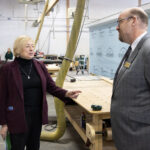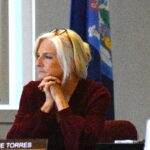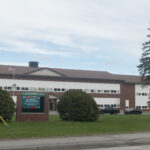Do you sometimes feel like a knight on a hopeless quest in search of ancestors? I always try to be optimistic but there can be barriers almost impossible to scale. Let’s take a look at some of the most difficult challenges you may face.
One thing that can hinder your research is the time and place. You’re more likely to find records for the twentieth century than the fourteenth. Early records are more abundant for royalty or the nobility. Also, if you don’t know the ancestral language it can be daunting to try to research. I’m half Lithuanian and don’t know the language. To complicate matters, when Lithuania was forcibly annexed by Russia the native language was forbidden and church records in Latin had to be written in the Cyrillic script. You need an expert to read it. That means paying for a researcher.
Location can present barriers. Imagine trying to research Ukrainian ancestors right now. But you can have difficulties much closer to home. Let us say your ancestors lived in far eastern Maine in the mid-1700s. There were few organized communities, and often no ministers or churches. Sometimes the people who settled there didn’t own the land but were, in effect, squatters. Records of births, marriages and deaths weren’t recorded. In the case of tiny settlements, the only records may have been family Bibles, and these can get lost, sold or tossed. This problem isn’t unique to Maine, but is common in any frontier area.
Still another problem may be that the records are hidden. For example, in Maine, there are many historical societies that hold records, but because they are small and all volunteer, they usually don’t have a website or even a complete catalog of their holdings. All too often these types of societies have one or two individuals who know the collection like the back of their hands. If the one who does know the answers isn’t available, your research trip will likely end in frustration.
Finally, many records are in jeopardy. Poorly funded groups quite often don’t have the training to properly conserve their collections, resulting in the loss of priceless materials. And there may be opposition to having holdings copied or shared. There are groups who possess records but are inclined to hold them close for their own members. These factors truly can create brick walls that are virtually impassable.
My advice is to keep trying. Widen your search to surrounding communities as borders changed over the years. Try to make local contacts in libraries and historical societies and watch commercial sites and trees in case something surfaces. It was an unexpected post that revealed the maiden name of a third great-grandmother.
Finally, readers, if you recently sent me a request for advice and I haven’t answered, please email me again. It appears that a hard drive crash caused problems even with my email. I apologize for any delays. The dog didn’t eat my homework, but my computer did.
Columnist Nancy Battick of Dover-Foxcroft has researched genealogy for over 30 years. She is past president of the Maine Genealogical Society, author of several genealogical articles and co-transcribed the Vital Records of Dover-Foxcroft. Nancy holds an MA in History from UM and lives in DF with her husband, Jack, another avid genealogist. Reader emails are welcome at nbattick@roadrunner.com.







